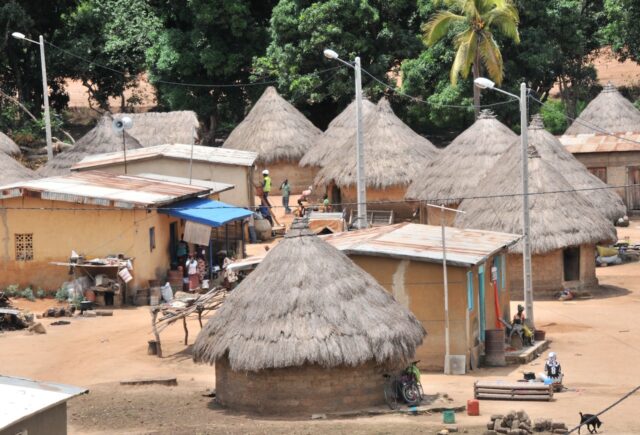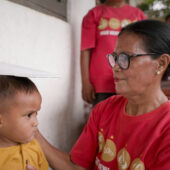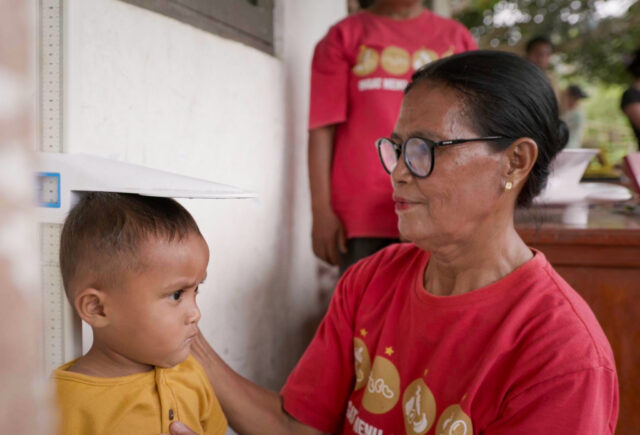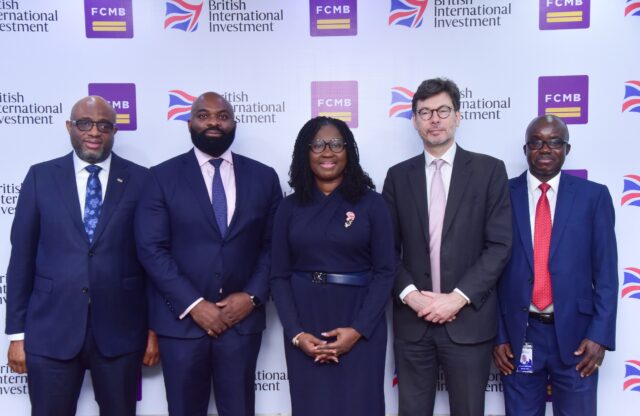Measuring impact is now more important than ever, acknowledges AFEX’s CEO Ayodeji Balogun. Over the last five years, AFEX has built a network of over 160,000 farmers and cumulatively facilitated over 200,000MT in trades, matching orders from producers and brokers with buyers on its trading platform at fair prices.

In short
- Nigeria-based commodities exchange AFEX released an impact report in late April covering its five years of attempting to build inclusive and efficient markets for smallholder farmers
- The impact report is a communication tool to show investors, banks, partners, and clients what is being achieved.
- The aim of the report is to capture the full impact of AFEX’s activities in enabling productivity, trade, and access to finance through the use of innovative technology, and in structuring Nigeria’s commodities ecosystem.
AFEX’s mission is about value creation and creating a more systemic and sustainable change, helping farmers, processors, traders, brokers and investors fulfil their potential, whether through boosting agricultural productivity, enabling farmers’ access to credit and markets or through the creation of a fair and efficient market for trading commodities.
It developed a Theory of Change model that connects AFEX’s strategies and activities to target impact. Everything it does is intended to feed into the bigger goal of helping Africa to feed itself.
To accurately gauge its success in meeting that goal, AFEX devised an impact assessment methodology that analyses the complexity of the contexts in which it operates.
It brought in Sanne Steemers, an independent advisor, to support the AFEX Strategy team in developing and structuring the impact framework, selecting indicators and supervising analysis.
Data tracker
Operating in the complicated country that is Nigeria, AFEX has grown organically and has had to adjust and expand its strategy over time.
While farmer verification and traceable trade were always part of the model, for some of the components in AFEX’s current Theory of Change framework historical data was not always collected.
Data had to be sourced from different systems and in several cases had to be cleaned and complemented with assumptions. Some components of the Theory of Change can’t currently be measured and indicators are being implemented for inclusion in future impact reports.
“AFEX wanted to build up their own team’s capacity to collect and manage data and actually monitor their impact going forward. So, we pretty much tailored their approach to that request,” Steemers tells Impact Investor.
“We also wanted to put a complete impact framework in place with a very clear logic of what the impacts could and should be, backed up with very clear data that ideally also allows them even on a quarterly basis to see how they’re progressing towards that impact internally.”
For many organisations impact assessments tend to be one-off exercises. At the start of a certain time period, some objectives are set, and five years later people check to see which part of those have been met.
Livelihod survey
The process at AFEX was different. “What I liked about this process is that we’ve not just worked towards just one report, but we’ve actually worked towards a system of measuring, monitoring and managing impact. It is based on continuous feedback and adjusting where necessary,” says Steemers.
Technology is at the core of the AFEX business model. The advantage of this is that all the transactions are tracked, with timestamps to prove it. “A lot of the transactional data was very precise, complete and accurate. That part was quite easy,” says Steemers.
Where data was lacking, Steemers had to improvise. For example, she used non-AFEX farmers as a control group to compensate for the lack of a baseline.
A livelihoods survey of 2,435 farmers across northern Nigeria was conducted, covering both AFEX and non-AFEX farmers, to measure the current livelihoods and target impact of AFEX’s activities.
Surveys were conducted by phone in August and September 2020, based on a sample selected from the AFEX database and partner databases.
“We were able to already see a lot of correlations between poverty levels being much lower, for example, for farmers who have more diverse farms, and there’s a strong correlation between hunger and household size,” says Steemers.
SDG Model
When gauging broader impacts, AFEX used tools linked to the 17 Sustainable Development Goals (SDGs) set by the United Nations to assess poverty using the poverty probability index. The 17 SDGs laid out a universal agenda that aligns with AFEX’s vision for a better and more sustainable future for all by 2030.
AFEX aligned impact indicators with selected official SDG indicators alongside other common measurement instruments, with some additional metrics. It balanced accuracy with the feasibility of data collection.
The founding goal at AFEX – to support Africa’s food security – has seen operations poised to strongly contribute to SDGs 1,2,5,8, and 12 advocating for no poverty, zero hunger, gender equality, decent work and economic growth, and sustainable production and consumption.
AFEX has grown to a network of almost 160,000 farmers in just five years. Farmers who have received continued support for a longer period of time show more resilience and lower levels of poverty and hunger.
In one sense, says Steemers, the impact report might not change the way AFEX is working, because the activities that lead to impact are already built into the AFEX business model anyway.
“The value of the impact report is that there’s now a management system in place based on the report,” says Steemers. “There are also targets that are going to be monitored internally and reviewed. There’s going to be assessments to see whether we’re still on track towards those targets.”






